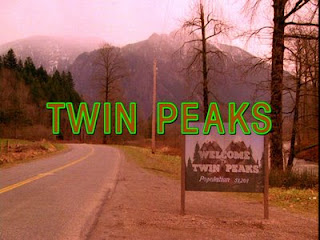Frequently, even though I have plenty of games and television series to keep me busy when not looking for work, writing or studying, I get the urge to try something new, and my first destination is Sci-Fi TV on Netflix streaming. Among the many shows that are in that category that I've seen already, there are a few I never watched for one reason or another. Jericho was one of those. My wife decided to start up on Jericho, we'd both heard about it years ago and it sounded vaguely interesting. It was one of those shows, I recall when it was on the air, that got canceled and a lot of people were upset. Normally, I'd be riding that bandwagon years after the fact and decrying the studios for not giving great TV a chance and wagging my finger at the public for preferring more vapid entertainment to allow such a situation to occur. Not this time. After watching the first handful of episodes of Jericho, my main question isn't: "Why did they cancel this?" My main question is: "How did this ever get a 2nd season?"
 |
| Once I'd gotten a hold of the concept, I really wanted to like this. |
To be fair to the show, I think that placing this series in the sci-fi category is not particularly accurate, so a portion of my willingness to bail early on the series probably rests with it not being what I expected. Jericho is really a disaster drama set in the early stages of the post-apocalypse immediately after the disaster that ends civilization. In addition to people coping with the uncertainty of an apocalyptic event, trying to survive short-term, and hold a community together to maintain order, the show gets into the mystery of just what happened and why. On its surface, this is the sort of concept that appeals to me. Skeet Ulrich plays Jake Green, an adult who left the small Kansas town of Jericho in disgrace, but after cleaning up his life, he turns up to ask for his inheritance to get a fresh start. While in town for only a few days, the world ends, and he finds himself caught in his hometown and steps up to provide leadership in a crisis.
One of the problems with the series is that far too many events are played over the top with dramatic disaster music and characters explaining how the next action could kill people. Sure, many of the situations are dangerous, and the lives of the characters are frequently threatened in the immediate aftermath of nuclear weapons detonating in major cities around the United States. The problem is that it is impossible to maintain dramatic tension when everything is a crisis. Even if it is realistic that nearly every environment and action taken is risky or life-threatening, for the sake of a watchable narrative a point has to be reached where only the most dramatic crises are portrayed, and there is a little bit more summing up and getting on with the story. The sort of music heard once or twice in a good action movie, in the scenes where you can forget that of course the hero will survive... that music is constantly being played in Jericho. A little more often, and I'd have suspected that it was a sly, subtle disaster film parody because the music would have been unintentionally funny... it stops just short of that, in "tedious" territory.
 |
| Large cast, small, petty personalities for all but one of the characters pictured. |
The single largest problem with Jericho is the characters, and how difficult it quickly becomes to care whether any of them live or die. The entire town is populated with stock characters, and most of them are jerks. The closer to being a decent person you are in Jericho, the more likely you are to be uninteresting by virtue of not having a shred of originality in your characterization. Maybe this is realistic, most people aren't interesting and in a crisis, they become selfish, petty and altogether unpleasant. This doesn't excuse them not being entertaining. I found myself still curious about the setting, and the mystery of why and how the apocalypse happened, but realized that I could look those details up online without having to suffer through watching the overly dramatic struggle of people who could die at any moment without an ounce of emotional impact for me. There is a single interesting man, but he's clearly not what he seems from the start, and he can't carry the rest of the show on his own, especially since he seems to be in opposition with them early on.
In some ways, Jericho, made in 2006, reminds me of this year's Falling Skies, as the concept of the apocalypse immediately after it happens is still a good one. Jericho, however, shares all of the flaws Falling Skies has without any of the things that makes the Alien Apocalyptic survival series good TV in spite of them. I can really only recommend this show if you are a disaster film junkie, or a fan of Falling Skies who is completely caught up and thirsting for something similar to the point you'd accept a lesser, diluted experience while waiting for more material. I'm certain that fans of the show might complain that I didn't give it enough of a chance, maybe it did get better later. I just couldn't watch anymore of a show that felt like an 80/20 mix of Dawson's Creek and Fallout. In a show with an ensemble cast this size, the characters and their relationships must be interesting to watch, or a great concept is wasted.
 Blog Gadgets
Blog Gadgets



























